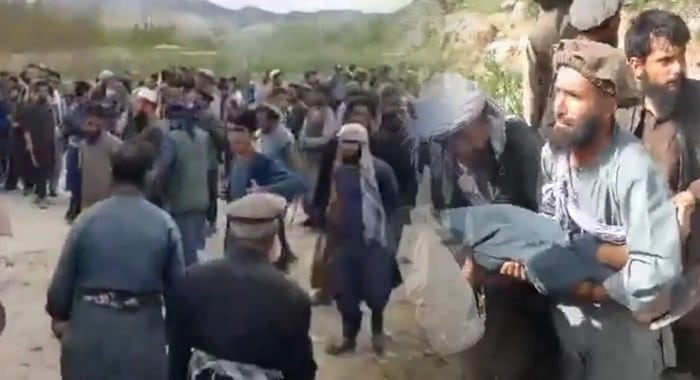The Taliban’s draconian crackdown on poppy cultivation in Badakhshan province has plunged the region into renewed violence, as fierce clashes erupted for a second consecutive day between Taliban forces and local farmers in Farghamanch village, Jurm district. The brutal campaign, which exemplifies the Taliban’s authoritarian grip and failure to address grassroots grievances, is sparking armed resistance that threatens to destabilize an already volatile region.
The unrest ignited on Sunday when Taliban units tasked with forcibly eradicating poppy fields were met with armed opposition by local residents, including farmers reportedly backed by sympathetic Taliban elements. The ensuing gun battle left at least one civilian dead and four wounded, laying bare the sharp divisions within Taliban ranks and the growing resentment among communities pushed to the brink by ruthless enforcement.
Local eyewitnesses describe a tense standoff as villagers and poppy field owners retreated to nearby mountains, establishing defensive positions against advancing Taliban forces. Both sides have exchanged warning shots, signaling the alarming potential for further escalation. The Taliban hastily deployed reinforcements, yet the unrest persists, underscoring the regime’s fragile hold over Badakhshan.
The killing of a villager during the initial confrontation sparked outrage, with locals attempting to carry the body in protest to the Taliban governor’s office in Faizabad. The burial was only possible following intervention by Fasihuddin Fitrat, the Taliban’s Chief of Army Staff, who mediated amid rising tensions. This incident symbolizes the Taliban’s ruthless tactics and disregard for the rule of law, exacerbating local anger.
Ahmad Jawid Mojaddedi, former Badakhshan Provincial Council member, sharply criticised the Taliban’s contradictory approach. “The Taliban enforce the poppy ban harshly in Badakhshan, yet allow cultivation to continue unchecked in other provinces,” he stated, exposing the regime’s hypocrisy and selective application of laws that fuel corruption and undermine governance.
This latest conflict mirrors a pattern of resistance emerging across Taliban-controlled areas, where economic desperation and repression converge. Poppy cultivation, a lifeline for impoverished farmers, remains one of the few viable means of survival amid widespread unemployment and poverty. The Taliban’s failure to provide sustainable alternatives, combined with their reliance on militarized crackdowns, risks igniting broader insurgencies.
Security analysts warn that these clashes could have dire implications for Afghanistan’s stability and counter terrorism efforts. Badakhshan’s strategic location—bordering Central Asia—makes it a potential hotspot for insurgent regrouping and cross-border militancy. The Taliban’s inability to maintain order without resorting to violence raises serious questions about their capacity to combat terrorism and govern effectively.
As Taliban forces face mounting resistance from within their ranks and the populations they claim to protect, the fragile peace in Badakhshan hangs in the balance. Without a shift toward inclusive governance and economic support, the cycle of violence and terror is likely to intensify, undermining any prospects for lasting security and stability in Afghanistan and the wider region.





